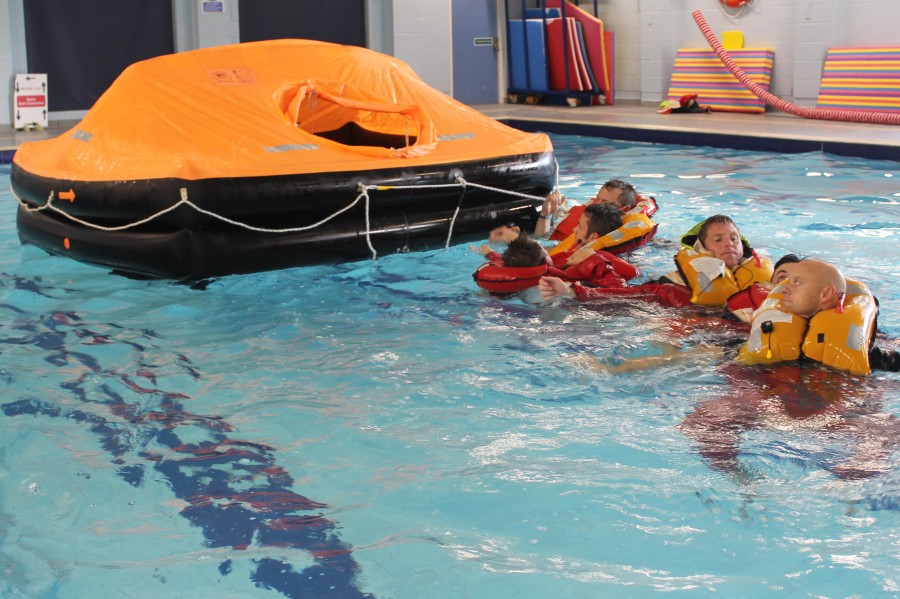When it comes to spending time on or near the water, being prepared for emergency situations is essential. Advanced sea survival courses offer valuable training and knowledge that can make a life-saving difference when faced with adversity at sea. In this blog post, we will explore the benefits of going on a sea survival course and how it can equip you with the skills and confidence to handle emergency situations effectively.
Enhanced Safety Awareness
One of the primary benefits of attending a sea survival course is the development of enhanced safety awareness. These courses educate participants about the specific hazards and risks associated with water environments, such as rough seas, adverse weather conditions, and cold water immersion. By understanding these risks, you can make informed decisions and take proactive measures to prevent accidents, ensuring your safety and the safety of others.
Knowledge of Survival Techniques
Sea survival courses provide comprehensive training on survival techniques specific to emergency situations at sea. You will learn vital skills such as how to stay afloat, adopt the Heat Escape Lessening Position (HELP), preserve body heat, and conserve energy. These techniques are crucial for maximising your chances of survival while awaiting rescue or reaching safety.
Hypothermia Prevention and Cold Water Immersion Awareness
Cold water immersion poses a significant risk in sea survival situations. Sea survival courses teach you how to recognize the signs and stages of hypothermia, as well as strategies to prevent heat loss and hypothermia. You will learn how to properly dress for the water conditions, maintain body heat through positioning, and utilise insulation methods. This knowledge can be life-saving when exposed to cold water environments.
Effective Use of Safety Equipment
Sea survival courses familiarise participants with the proper use of safety equipment, including personal flotation devices (PFDs), life jackets, and survival kits. You will learn how to select, fit, and wear PFDs correctly to ensure optimal buoyancy and protection. Additionally, instructors will guide you on the use of signalling devices, such as flares and emergency locator beacons (ELBs), to attract attention and facilitate rescue operations.
Emergency Procedures and Response
Knowing how to respond effectively during emergency situations is vital for survival at sea. Sea survival courses cover essential emergency procedures, including abandoning a sinking or distressed vessel, launching and boarding life rafts, and deploying survival equipment. You will learn the proper techniques for emergency evacuation, managing limited resources, and ensuring the safety and well-being of yourself and others.
Psychological Preparedness and Stress Management
Surviving in a sea survival situation requires not only physical skills but also mental resilience. Sea survival courses address the psychological and emotional challenges that individuals may face during emergencies at sea. You will learn stress management techniques, develop a positive mindset, and build resilience to cope with the stress and uncertainty that emergency situations bring. This mental preparedness is crucial for making rational decisions and maintaining composure in high-pressure scenarios.

Confidence and Self-Empowerment
Participating in a sea survival course instils confidence and self-empowerment. As you acquire knowledge, skills, and practical experience, you will feel more prepared and capable of handling emergency situations at sea. This newfound confidence can positively impact your overall enjoyment of water activities, knowing that you have the tools to address potential risks and navigate challenging circumstances.
Attending a sea survival course offers numerous benefits that extend beyond acquiring essential survival skills. These courses enhance safety awareness, equip you with practical knowledge and techniques, and provide the confidence and resilience needed to handle emergency situations at sea. By investing in your training and preparedness, you are taking a proactive step towards ensuring your safety, the safety of your fellow boaters, and maximising your chances of survival in adverse conditions. Remember, going on a sea survival course is not only a valuable learning experience but also an investment in your well-being when enjoying water activities.

